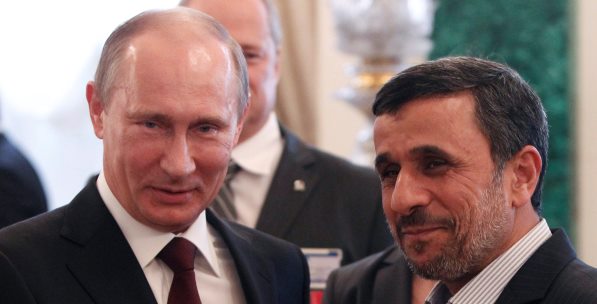A head of the Nov. 1 parliamentary elections, Turkey remains primarily focused on the counterterrorism campaign against the PKK. Meanwhile, chess pieces are moving south of the border. In recent weeks, it has become clear that the United States has given up on the train-and-equip program and took thinly-veiled steps to provide weapons and training to the Democratic Union Party (PYD) forces, whose attractiveness for Washington was the main reason why the train-and-equip program proved unsuccessful.
At this point, many people believe that the Obama administration uses the PYD to strongarm the Turkish government into fighting the Islamic State of Iraq and al-Sham (ISIS). In the meantime, there is a growing sense that the PKK's bloody campaign in Turkey owes its momentum to the organization's access to experienced fighters and military supplies from northern Syria. Hence the growing tensions between Turkey and the United States. To be clear, the Obama administration's game plan in Syria focuses on weakening ISIS as opposed to removing Bashar Assad from power. The worst-case scenario, therefore, entails ISIS fighters capturing Damascus. In contrast, the administration dreams of scoring some valuable points for the Democrats ahead of the 2016 presidential race by taking Raqqa back from the terrorists. To make the dream come true, Washington has been pushing the peshmerga and the PYD, two forces they have been assisting, to work together.
In the fight against ISIS, the United States hasn't been the only country to increase their military presence in Syria. In recent weeks, news of Russian military aid to the Assad regime and Moscow's interest in establishing an additional military base in the country hit the wires - which the Russians seek to legitimize with reference to counterterrorism. It is no secret that Russian President Vladimir Putin's most recent efforts have deeply troubled Washington, but it remains to be seen which steps the Obama administration will take to counter-balance the regime's growing firepower. At this time, it would appear that Washington is trying to establish what Mr. Putin wants to accomplish: Is the decision really an effort to ramp up Russia's bargaining power in international negotiations? Or is Moscow gearing up for an all-out military offensive akin to the invasion of Afghanistan in the 1980s?
In truth, Moscow and Damascus have been close allies since the Cold War period and Mr. Putin has been providing diplomatic and military support to the Assad regime since the Syrian civil war began in 2011. It remains to be seen, however, what the Russians are contemplating. Some analysts believe that the Kremlin has decided to showcase its muscles in Syria to make up for an agreement over Ukraine in the making. Others point out that a number of Russian troops, who have been shipped off to Syria, had been fighting in Ukraine. As such, most observers seem to believe that Mr. Putin seeks to appeal to his nationalist base ahead of a major policy change in Ukraine. Meanwhile, a competing analysis associates Moscow's most recent moves to the country's vested interests in the anti-ISIS campaign. In an effort to prevent Chechen ISIS fighters from returning to Russia, analysts claim, Mr. Putin has decided to take the fight to Syria. Yet another group of experts suggest that Russia's greater involvement in the Syrian civil war represents a challenge to Iran: The Russians, they argue, are taking steps to make sure that Iran's improving commercial and political relations with the West won't isolate Moscow in the region.
Regardless of which story you believe, one thing is clear: Mr. Putin is planning to showcase his military's power in the Middle East and the Mediterranean. Having challenged the United States in Georgia and Ukraine, he proceeds to make his presence known in Syria. Obviously, Russia's most recent moves will heat up the Syrian civil war and Turkey, in light of the developments, needs to come to terms with Washington's long-term support for the PYD forces. The key question,









